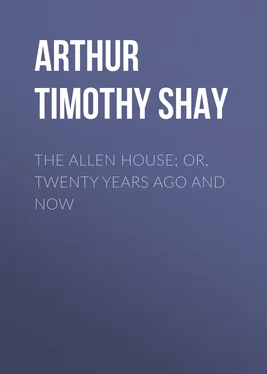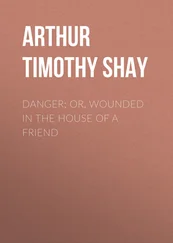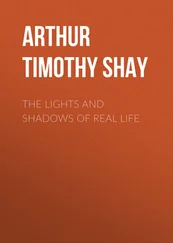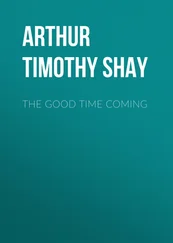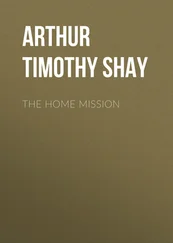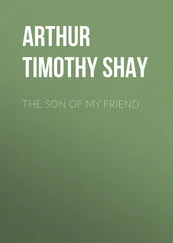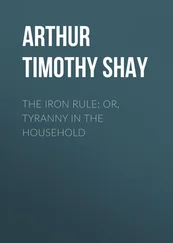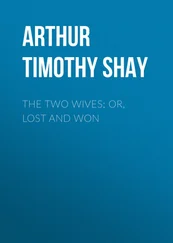Timothy Arthur - The Allen House; Or, Twenty Years Ago and Now
Здесь есть возможность читать онлайн «Timothy Arthur - The Allen House; Or, Twenty Years Ago and Now» — ознакомительный отрывок электронной книги совершенно бесплатно, а после прочтения отрывка купить полную версию. В некоторых случаях можно слушать аудио, скачать через торрент в формате fb2 и присутствует краткое содержание. Жанр: foreign_sf, literature_19, foreign_antique, foreign_prose, на английском языке. Описание произведения, (предисловие) а так же отзывы посетителей доступны на портале библиотеки ЛибКат.
- Название:The Allen House; Or, Twenty Years Ago and Now
- Автор:
- Жанр:
- Год:неизвестен
- ISBN:нет данных
- Рейтинг книги:3 / 5. Голосов: 1
-
Избранное:Добавить в избранное
- Отзывы:
-
Ваша оценка:
- 60
- 1
- 2
- 3
- 4
- 5
The Allen House; Or, Twenty Years Ago and Now: краткое содержание, описание и аннотация
Предлагаем к чтению аннотацию, описание, краткое содержание или предисловие (зависит от того, что написал сам автор книги «The Allen House; Or, Twenty Years Ago and Now»). Если вы не нашли необходимую информацию о книге — напишите в комментариях, мы постараемся отыскать её.
The Allen House; Or, Twenty Years Ago and Now — читать онлайн ознакомительный отрывок
Ниже представлен текст книги, разбитый по страницам. Система сохранения места последней прочитанной страницы, позволяет с удобством читать онлайн бесплатно книгу «The Allen House; Or, Twenty Years Ago and Now», без необходимости каждый раз заново искать на чём Вы остановились. Поставьте закладку, и сможете в любой момент перейти на страницу, на которой закончили чтение.
Интервал:
Закладка:
Having a few near calls to make, I did not order my horse, as both health and inclination were better served by walking. Soon after breakfast I started out, and was going in the direction of Judge Bigelow’s office, when, hearing a step behind me that had in it a familiar sound, I turned to find myself face to face with Henry Wallingford! He could hardly have failed to see the look of surprise in my face.
“Good morning, Henry,” I said, giving him my hand, and trying to speak with that cheerful interest in the young man which I had always endeavored to show.
He smiled in his usual quiet way as he took my hand and said in return,
“Good-morning, Doctor.”
“You were not out, I believe, yesterday,” I remarked, as we moved on together.
“I didn’t feel very well,” he answered, in a voice pitched to a lower key than usual; “and, the day being a stormy one, I shut myself up at home.”
“Ah,” said I, in a cheerful way, “you lawyers have the advantage of us knights of the pill box and lancet. Rain or shine, sick or well, we must travel round our parish.”
“All have their share of the good as well as the evil things of life,” he replied, a little soberly. “Doctors and lawyers included.”
I did not observe any marked change in the young man, except that he was paler, and had a different look out of his eyes from any that I had hitherto noticed; a more matured look, which not only indicated deeper feeling, but gave signs of will and endurance. I carried that new expression away with me as we parted at the door of his office, and studied it as a new revelation of the man. It was very certain that profounder depths had been opened in his nature—opened to his own consciousness—than had ever seen the light before. That he was more a man than he had ever been, and more worthy to be mated with a true woman. Up to this time I had thought of him more as a boy than as a man, for the years had glided by so quietly that bore him onward with the rest, that he had not arisen in my thought to the full mental stature which the word manhood includes.
“Ah,” said I, as I walked on, “what a mistake in Delia Floyd! She is just as capable of high development as a woman as he is as a man. How admirably would they have mated. In him, self-reliance, reason, judgment, and deep feeling would have found in her all the qualities they seek—taste, perception, tenderness and love. They would have grown upwards into higher ideas of life, not downwards into sensualism and mere worldliness, like the many. Alas! This mistake on her part may ruin them both; for a man of deep, reserved feelings, who suffers a disappointment in love, is often warped in his appreciation of the sex, and grows one-sided in his character as he advances through the cycles of life.”
I had parted from Henry only a few minutes when I met his rival, Ralph Dewey. Let me describe him. In person he was taller than Wallingford, and had the easy, confident manner of one who had seen the world, as we say. His face was called handsome; but it was not a manly face—manly in that best sense which includes character and thought. The chin and mouth were feeble, and the forehead narrow, throwing the small orbs close together. But he had a fresh complexion, dark, sprightly eyes, and a winning smile. His voice was not very good, having in it a kind of unpleasant rattle; but he managed it rather skillfully in conversation, and you soon, ceased to notice the peculiarity.
Ralph lived in New York, where he had recently been advanced to the position of fourth partner in a dry goods jobbing house, with a small percentage on the net profits. Judging from the air with which he spoke of his firm’s operations, and his relation to the business, you might have inferred that he was senior instead of junior partner, and that the whole weight of the concern rested on his shoulders.
Judge Bigelow, a solid man, and from professional habit skilled in reading character, was, singularly enough, quite carried away with his smart nephew, and really believed his report of himself. Prospectively, he saw him a merchant prince, surrounded by palatial splendors.
Our acquaintance was as yet but slight, so we only nodded in passing. As we were in the neighborhood of Squire Floyd’s pleasant cottage, I was naturally curious, under the circumstances, to see whether the young man was going to make a visit at so early an hour; and I managed to keep long enough in sight to have this matter determined. Ralph called at the Squire’s, and I saw him admitted. So I shook my head disapprovingly, and kept on my way.
Not until late in the afternoon did I find occasion to go into that part of the town where the old Allen house was located, though the image of its gleaming north-west windows was frequently in my thought. The surprise occasioned by that incident was in no way lessened on seeing a carriage drive in through the gateway, and two ladies alight therefrom and enter the house. Both were in mourning. I did not see their faces; but, judging from the dress and figure of each, it was evident that one was past the meridian of life, and the other young. Still more to my surprise, the carriage was not built after our New England fashion, but looked heavy, and of a somewhat ancient date. It was large and high, with a single seat for the driver perched away up in the air, and a footman’s stand and hangings behind. There was, moreover, a footman in attendance, who sprung to his place after the ladies had alighted, and rode off to the stables.
“Am I dreaming?” said I to myself, as I kept on my way, after witnessing this new incident in the series of strange events that were half-bewildering me. But it was in vain that I rubbed my eyes; I could not wake up to a different reality.
It was late when I got home from my round of calls, and found tea awaiting my arrival.
“Any one been here?” I asked—my usual question.
“No one.’ The answer pleased me for I had many things on my mind, and I wished to have a good long evening with my wife. Baby Mary and Louis were asleep: but we had the sweet, gentle face of Agnes, our first born, to brighten the meal-time. After she was in dream-land, guarded by the loving angels who watch with children in sleep, and Constance was through with her household cares for the evening, I came into the sitting-room from my office, and taking the large rocking-chair, leaned my head back, mind and body enjoying a sense of rest and comfort.
“You are not the only one,” said my wife, looking up from the basket of work through which she had been searching for some article, “who noticed lights in the Allen House last evening.”
“Who else saw them?” I asked.
“Mrs. Dean says she heard two or three people say that the house was lit up all over—a perfect illumination.”
“Stories lose nothing in being re-told. The illumination was confined to the room in which Captain Allen died. I am witness to that. But I have something more for your ears. This afternoon, as I rode past, I saw an old-fashioned English coach, with a liveried driver and footman, turn into the gate. From this two ladies alighted and went into the house; when the coach was driven to the stables. Now, what do you think of that?”
“We are to have a romance enacted in our very midst, it would seem,” replied my wife, in her unimpassioned way. “Other eyes have seen this also, and the strange fact is buzzing through the town. I was only waiting until we were alone to tell you that these two ladies whom you saw, arrived at the Allen House in their carriage near about daylight, on the day before yesterday. But no one knows who they are, or from whence they came. It is said that they made themselves as completely at home as if they were in their own house; selected the north-west chamber as their sleeping apartment; and ordered the old servants about with an air of authority that subdued them to obedience.”
Читать дальшеИнтервал:
Закладка:
Похожие книги на «The Allen House; Or, Twenty Years Ago and Now»
Представляем Вашему вниманию похожие книги на «The Allen House; Or, Twenty Years Ago and Now» списком для выбора. Мы отобрали схожую по названию и смыслу литературу в надежде предоставить читателям больше вариантов отыскать новые, интересные, ещё непрочитанные произведения.
Обсуждение, отзывы о книге «The Allen House; Or, Twenty Years Ago and Now» и просто собственные мнения читателей. Оставьте ваши комментарии, напишите, что Вы думаете о произведении, его смысле или главных героях. Укажите что конкретно понравилось, а что нет, и почему Вы так считаете.
